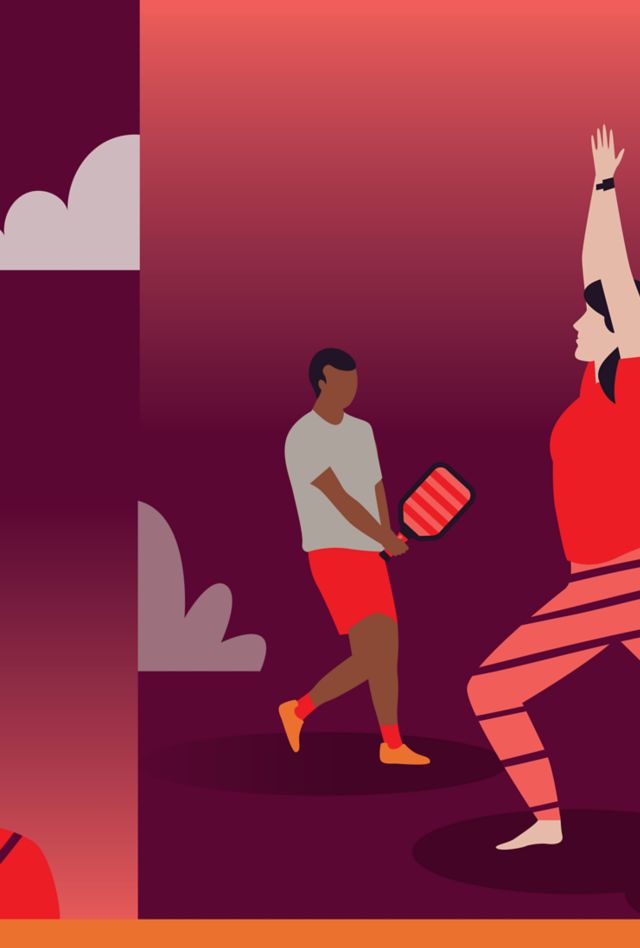Aging with Vitality: Older Adults Are Embracing Change for Healthier Living

Foresight 50+
Foresight 50+ by AARP and NORC offers deep insight into the views and behaviors of Americans 50 and older.
For inquiries, contact us:
May 2024
Older adults are redefining aging by making proactive choices for their health. In our latest Foresight 50+ FastTrack, we delve into the choices older adults are making.
What’s the secret to a longer, healthier life? A quick online search will yield a multitude of answers: lift weights, do cardio, marry young, cut down on alcohol. There seems to be no clear consensus, but that doesn’t stop people from trying. In fact, according to a new study using Foresight 50+, by NORC and AARP, most older adults are still finding new ways to enhance their well-being.
Older Adults Are Making Positive Health Changes
The vast majority of older adults made changes in the past year hoping to boost overall wellness. Roughly 8 in 10 (82%) older adults adopted at least one new behavior in the last year, with the intent to improve their health. Around half of older adults started eating a healthy diet or taking vitamins or health supplements. Almost 40% focused on getting enough sleep, while about a third started being physically active and limiting or avoiding alcohol. Only eighteen percent said that they did not make any changes.

The majority of older adults are staying active. Around half (54%) report getting moderate to vigorous physical activity at least weekly. Only a third (34%) work out less than once a week and just 12% never get moderate to vigorous physical activity.
Interestingly, adults 65 and over have started more health-related activities in the past 12 months than younger members of the cohort. 50- to 64-year-olds on average started two activities, while adults 65 years and older started 3 activities on average. This could be because older adults have the time to participate in all these activities as those who are retired have engaged in more activities in the past year compared with those who are working.

Older Adults Think Their Mental Health Is Better Than Their Physical Health
Most older adults rate their mental health as excellent or very good compared to around half who say the same about their physical health.
It’s also clear that physical activity and positive mental outlook are connected. Those who said they work out at least weekly were more positive about both their mental and physical health than those who exercise less often. Six in 10 older adults who exercise at least once a week self-report excellent or very good physical health, and almost 8 in 10 report excellent or very good mental health.
Those older adults who are more physically active are also more positive about their wellbeing. The majority of adults 50 and older who exercise at least weekly report excellent or very good mental health, while only half of older adults that exercise less than once a week report the same.

Socialization Improves Older Adults’ Mental Health
Perceptions of mental health also vary depending on how often older adults have social contact. Overall, 40% of adults 50 and older socialize every day and another 35% socialize at least a few times a week. Women were also more likely to socialize with friends than men. 79% of women socialize at least a few times a week vs 72% among men.
Seven in 10 older adults who socialize at least a few times a week report being in excellent or very good mental health. These positive assessments of mental health are lower among older adults who socialize a few times a month or less. However, socialization seems to have little impact on mental health.
Methodology
These findings come from online and telephone (landline and mobile) interviews with 1,003 U.S. adults on the Foresight 50+ Omnibus Survey March 14-18, 2024. The margin of sampling error was +/- 4.2 percentage points. A comprehensive listing of all study questions, tabulations of top-level results for each question, and detailed methodology is available here.
This survey is part of a series of Foresight 50+ Omnibus panel surveys focused on amplifying the voices of people fifty and over. Now more than ever, researchers and decision-makers need timely, high-quality data on what older Americans think, do, and buy—data that will inform product and service decisions and help them connect with the fastest growing age group in the country. The Foresight 50+ FastTrack series—a set of periodic studies using the panel—provides key findings and insights on an array of topics that might otherwise be unavailable to the public. The series also showcases ways your organization can use the panel to answer questions about the highly influential 50+ demographic.
The large Foresight 50+ panel can oversample a variety of target groups, such as Medicare beneficiaries, the affluent, grandparents, frequent travelers, caregivers, and others. Combined with our affordable TrueNorth (R) methodology, Foresight 50+ can incorporate data from lower-quality sample sources to gain insight into even smaller subpopulations, such as people with food allergies, veterans, and those with various health conditions.
For more information on our other surveys or to learn how we can customize a survey of this demographic to your needs, visit the Foresight 50+ website or email us at Foresight50-bd@norc.org. To learn more about how NORC delivers objective, nonpartisan insights and analysis that decision-makers trust across other issue areas and demographics, visit NORC.org.





